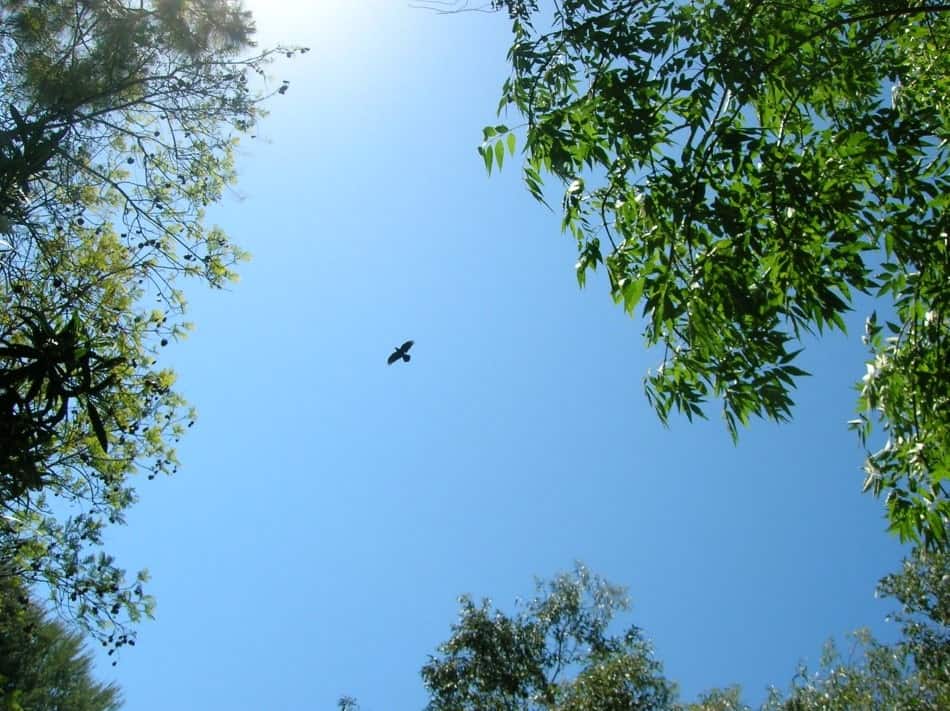Protecting your poultry from the many predators that feed on birds can be a real challenge. Things get even worse when the enemy doesn’t walk on land but flies high in the sky as hawks do.
Hawks are probably the most common predatory birds in North America. They are dangerous, too, due to their keen eyesight. What makes it important to keep your chickens well-protected is that hawks are very likely to come for more after they’ve tasted poultry.
In this article, I’m sharing my ideas about protecting chickens from hawks and some ready-made solutions that you might use.
[wpsm_titlebox title=”How to Keep Hawks Away from Chickens” style=”main”]
- Add a male to the flock of chickens.
- Get a well-trained guard dog.
- Use a Scarecrow or Reflective Material.
- Use Poultry Netting. Fencing off the area where your chickens are kept is the most effective way of protecting them against predators as long as you choose the right material.
[/wpsm_titlebox]
Buyer’s Guide and FAQ
Before we focus on what the hawk deterrent market has to offer, let’s find out what makes the bird so dangerous and what DIY solutions you can use to keep your poultry safe.

What is a Hawk?
The name is an umbrella term denoting a group of birds of prey, alternatively referred to as raptors. This means that their diet consists primarily of vertebrates, unlike other birds who might feed on seeds, berries, or smaller animals such as worms and larvae.
The hawk family is very common, and the bird’s habit of hunting live prey is a great problem for people who keep poultry. In North America alone, there are as many as seventeen distinct species that are designated as hawks. Each species has its preferred climate and habitat.
Some populate wooded areas, while others can glide over open areas looking for prey. The broad-winged hawk, Cooper’s hawk, the gray hawk, and the red-tailed hawk are especially common in the US, with considerable variation in size and plumage even within species.
Hawks pose a threat to chickens and other birds that are kept as poultry. To these raptors, your feathered friends are nothing but fast food. They can spend a lot of time flying about and looking for an easy prey, then attack rapidly and carry the bird away. It’s not uncommon for the chick to die on impact since hawks have strong sharp talons. Even if it survives the first moments, it’s practically doomed the moment it gets into a hawk’s claws.
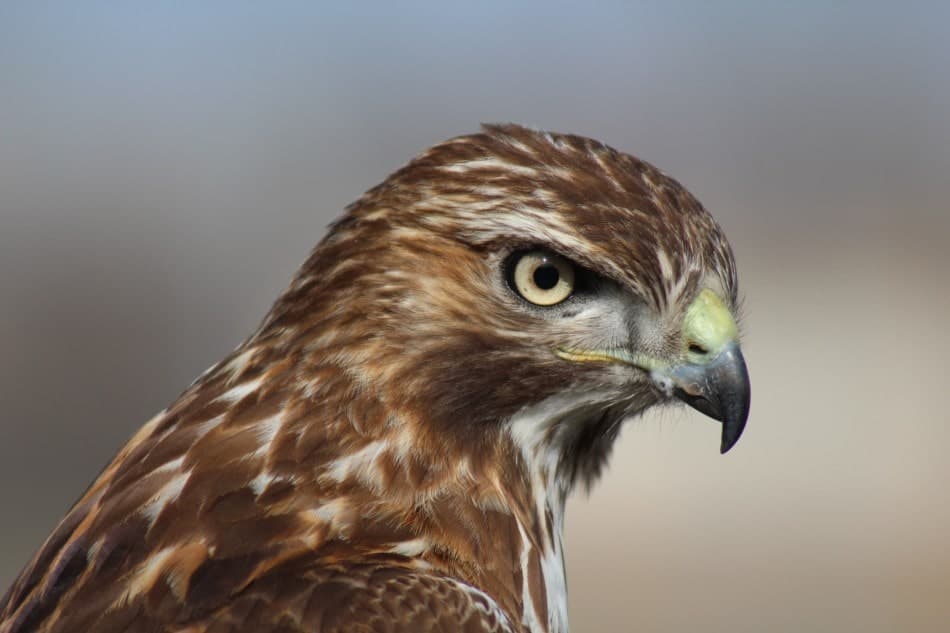
How Can I Keep a Hawk Away?
It doesn’t matter what species you’re dealing with when it comes to keeping hawks away from chickens and other poultry. Since a number of hawk varieties are protected under the Migratory Bird Treaty Act as of March 2020, killing the raptor or harming it would be illegal. Instead, the tips below are all safe in this respect and won’t get you into trouble with the law.
- Get a Rooster
One easy way in which you can stop hawks from killing chickens is to add a male bird to your flock. While hens and chickens are generally docile, males tend to be very aggressive, especially when defending their dependents. This is one of their functions as part of the flock.
If you wonder if it will work for protecting free-range chickens from hawks, the answer is yes. What roosters do is make a high-pitched noise that tells the birds to seek cover, so chances are high that those roaming about will hurry to the coop.
- Use a Guard Dog
Another way to naturally deter hawks from chickens is by getting a well-trained dog that will act just like a rooster but to a greater effect. Dogs have long been used as livestock guardians due to their ability to aggressively protect the flock by barking and roaring, which will most probably scare the raptor away.
They are stronger than roosters, too, and not easily deterred by birds of prey. It’s also likely that hawks will avoid the place if they know there’s a dog waiting for them.
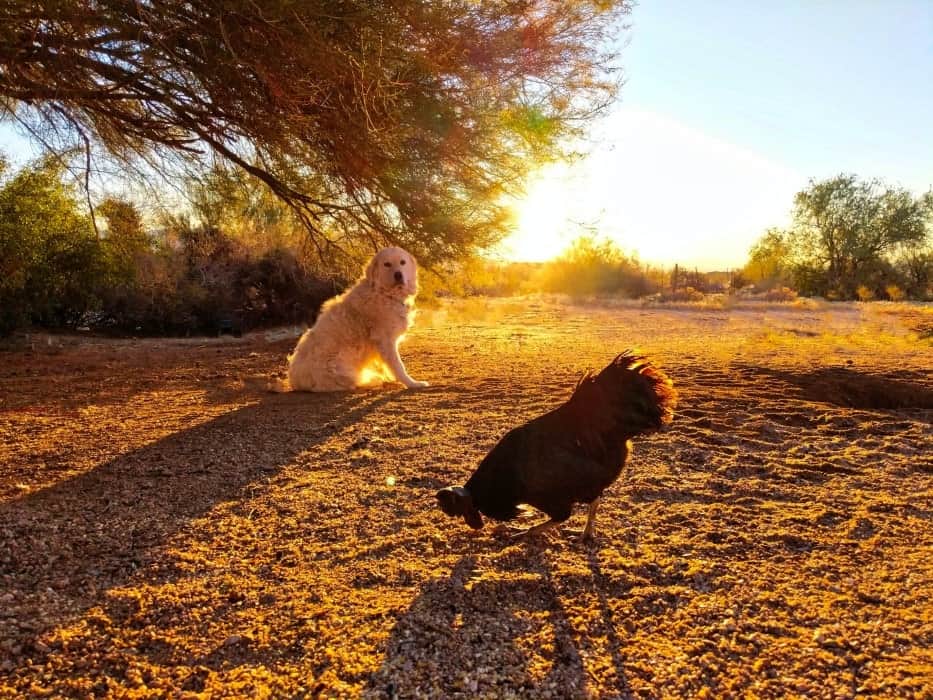
- Use a Scarecrow or Reflective Material
There are a number of visual deterrents that work well to scare hawks away from your chickens. A scarecrow is a viable budget-saving solution provided that you change its location every once in a while since hawks can get used to stationary objects that are meant to be scary.
Alternatively, you can buy some flashy tape or other reflective material and hang it around. It’s not just the reflected light that scares hawks but the rustling sound, too.
- Use Poultry Netting
Fencing off the area where your chickens are kept is the most effective way of protecting them against predators as long as you choose the right material. While relatively cheap and common, chicken wire doesn’t do a good job of keeping raptors away. What it does is simply prevent the livestock from scattering across the yard and roaming there unprotected. Hardware mesh and, especially, chain link fencing are way safer.
FAQ
Here are the answers to some of the most popular questions that poultry owners ask talking about hawks.
What does a chicken hawk sound like?
Chicken hawk is a fuzzy term that’s mistakenly applied to some species that aren’t really interested in chickens. It also includes the red-tailed hawk, which is a real enemy to poultry keepers. This species is known to make long, hoarse, screeching calls when soaring.
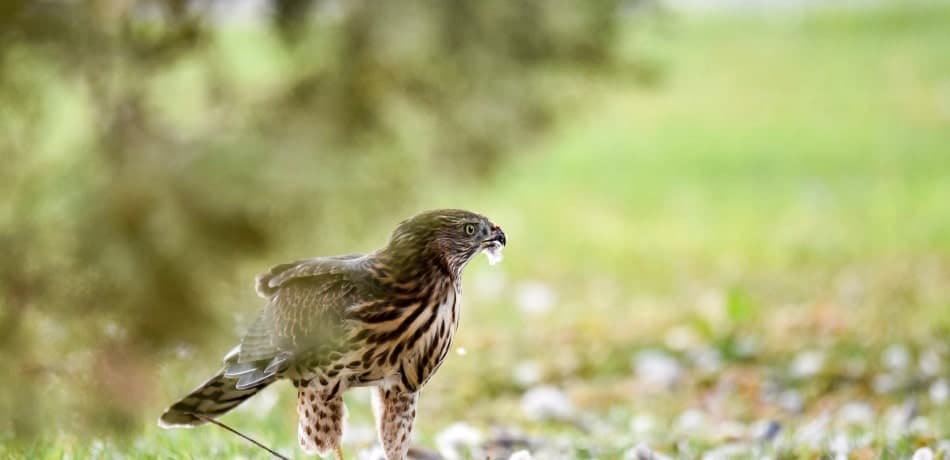
Where do chicken hawks live?
While there are several species that can go under this name (see above), we’ll concentrate on the red-tailed hawk as it’s the one that poses a threat to chickens. The raptor is common all across North America, mostly inhabiting areas where fields are combined with wooded areas that they can use to nest and perch looking for their prey.
Can hawks get through chicken wire?
Yes, they can. Hawks have long sharp talons that they will use to pull the bird, eventually killing it even though they might fail to get it out. Chicken wire is essentially a means of containment, which is also a good way to keep raptors away. See the section on poultry netting above for even safer alternatives.
[su_note note_color=”#dbe1d3″]Related Post: How to Get Rid of Crows [/su_note]
Best Chicken Wire Net
Chicken coop hawk netting is effective in that it keeps your livestock from roaming about. Since it’s free range prey that the raptors prefer, you might be interested in some durable easy-to-use products of the kind.
1. Feitore Deer Fence Netting: Reliable Chicken Coop Hawk Netting on a Budget
[amazon box=”B07SZ1H698″ template=”vertical” tracking_id=”how-to-keep-hawks-away-from-chickens-20″ button_text=”Check price on Amazon”]
Specifications:
- Color: Black
- Material: Polypropylene
- Item Weight: 1.79 pounds
- Package Dimensions: 9.92 x 6.02 x 5.94 inches
- Target Species: Birds, Deer and Other Animals
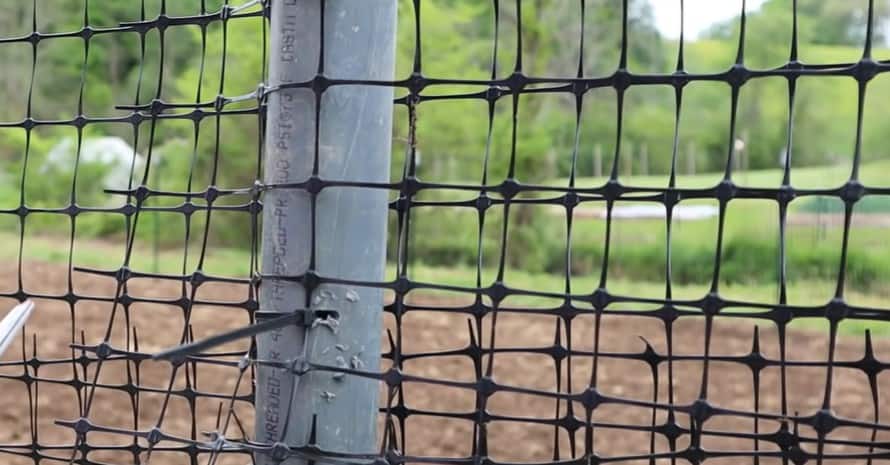
Made of light and durable polypropylene, this net has a mesh size of just ¾”, which adds to its security. The material is completely rust-proof and not prone to tangling, so you can reuse it.
| Pros: | Cons: |
|
|
2. DQS 11 Bird Garden 1” Mesh: A Cost-Effective Means of Protecting Chickens from Hawks
[amazon box=”B07FNNRKYC” template=”vertical” tracking_id=”how-to-keep-hawks-away-from-chickens-20″ button_text=”Check price on Amazon”]
Specifications:
- Size: 50’x50′ overall size
- Grid Diameter: 2.4″ Square Mesh
- Color: Black
- Material: Nylon Multifilament
- Item Weight: 4.22 pounds
- Package Dimensions: 11 x 7 x 7 inches
- Target Species: Birds
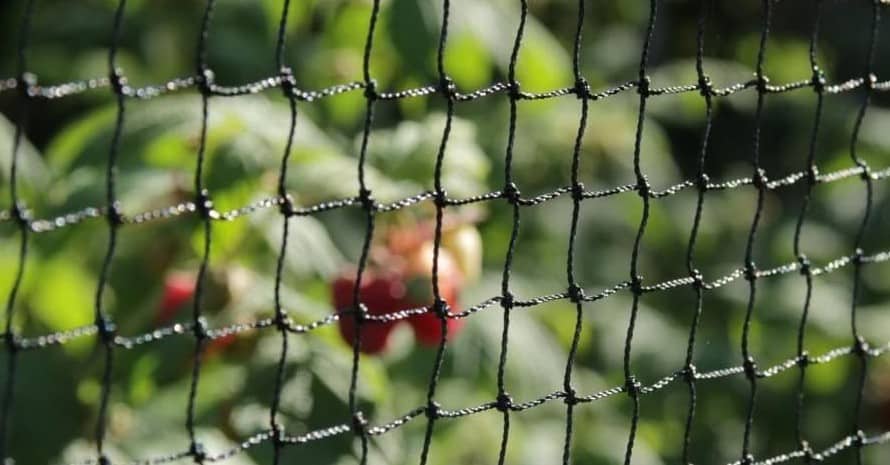
This is a recyclable 1” nylon net that’s made to minimize the risk of birds getting entangled while also keeping your chickens safe. Just like the first model on the list, it’s UV-resistant.
| Pros: | Cons: |
|
|
3. Excursions Aviary Netting: A Super Sturdy Hawk Deterrent
[amazon box=”B012L9ZIFE” template=”vertical” tracking_id=”how-to-keep-hawks-away-from-chickens-20″ button_text=”Check price on Amazon”]
Specifications:
- Color: Black
- Material: Polyethylene
- Item Weight: 12.72 pounds
- Package Dimensions: 39 x 15 x 6.7 inches
- Target Species: Birds
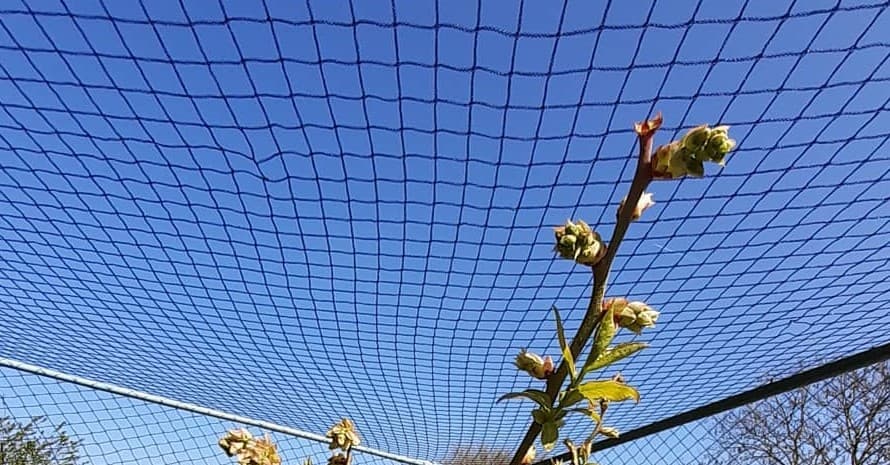
This 2” nylon mesh is made for maximum sturdiness and reliability and can be used to protect poultry from a wide range of predators. It can withstand a wide range of temperature conditions from -10 F to + 150 F. It uses deep UV protection rather than protective surface coating to make sure it will last in sunny climate.
| Pros: | Cons: |
|
|
Takeaways
Any poultry owner should be asking themselves how to protect chickens from hawks, as the raptors are truly ubiquitous. Solutions vary from watchdogs and simply adding a rooster to the flock to hawk deterrent nets and other containment materials. Finally, you can try to scare the birds away by using a scarecrow in your backyard or hanging strips of reflective material near the coop.
These are the most trusted ways of keeping your livestock safe and sound. I know that many people have been experimenting though, so feel free to share your experience. Do you have other ideas of what will keep chicken hawks away? Tell us!
References:
- Birds of Prey (U.S. Fish & Wildlife Service):
https://www.fws.gov/refuge/Siletz_Bay/wildlife_and_habitat/birds_of_prey.html - Red-tailed Hawk Identification (All About Birds):
https://www.allaboutbirds.org/guide/Red-tailed_Hawk/id - Migratory Bird Treaty Act Protected Species (U.S. Fish & Wildlife Service): https://www.fws.gov/birds/management/managed-species/migratory-bird-treaty-act-protected-species.php

